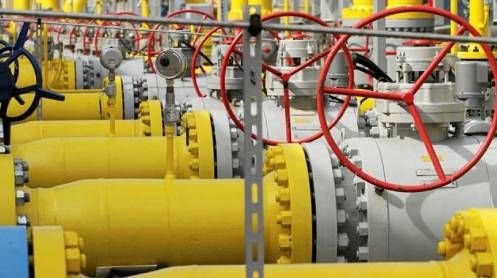ISLAMABAD: The country has failed to secure liquefied natural gas (LNG) from the spot market in its first attempt after a year-long break, as it received no bid for six shipments for the coming winter months.
State-run Pakistan LNG Ltd (PLL), which last week floated short-term tenders for three cargoes each in October and December, announced on Tuesday that it received no bid for any of the delivery windows until the closing time at 12:30pm.
The LNG supplies in the spot market eased in recent months, with significant price drops to the pre-Ukraine war level. This prompted the PLL to test the waters for its winter energy gas shortage.
However, those dealing with energy supplies said Pakistan’s strained relations with the International Monetary Fund (IMF) and adverse credit rating amid foreign exchange limitations kept the LNG traders at bay, as the country has been struggling to line up letters of credit for necessary imports.
PLL last week also issued a separate tender for three more cargoes — two in January and one in February — with a bid deadline of July 14.
This would also put to the test the government-to-government supply contract signed with Azerbaijan’s state-run Socar because there would be no price discovery from the comparable spot market bids to determine the reasonability of the bilateral price.
The PLL used to import up to three cargoes a month through spot tendering to meet seasonal demands, but it has been facing difficulties in securing even a single cargo since June last year when its repeated tenders failed to attract any bidder. Earlier bids were simply unaffordable and beyond paying capacity of the country’s foreign exchange resources.
Instead, the government had to increase electricity loadshedding, besides rationing gas supplies and withdrawing subsidies to the export sector.
After a gap of over a year, the PLL now again floated international tenders for nine cargoes for delivery between October 2023 and February 2024 — a period when hydropower generation gets close to zero and the gas demand from residential consumers also increases with winter demand. The viability of the PLL-Socar relationship may be put to the test during those times.
Socar had in the past been bidding for LNG cargoes to Pakistan but was never successful because of its higher prices. The two nations have, however, been vying for cooperation in the oil and gas trade for almost a decade. They signed an inter-governmental agreement in February 2017 to boost energy cooperation.
Pakistan currently relies on seven LNG cargoes per month from Qatar through Pakistan State Oil under two contracts of 10 and 15 years and one per month through PLL’s 15-year contract with the Italian multinational energy company Eni, which has defaulted in supplies on a few occasions.
The average regasified LNG basket prices at the distribution stage almost halved to $12 per million British thermal units (mmBtu) for June compared to $23-24 in May last year, when the Pakistan Democratic Movement’s (PDM) government secured a string of spot cargoes procured in the first month in office to meet energy shortages.
Since then, repeated efforts to import more gas through spot tenders have failed owing to tight supply conditions and record prices in the international market following the Russian-Ukraine war.
All eight to 10 monthly cargoes are available to Pakistan under long-term contracts, mostly with Qatar, except one from another supplier.
Under the one-year contract (extendable) with state-run Socar of Azerbaijan, the company will offer one LNG cargo per month 45 days before the start of the relevant delivery window, and each offer for the cargo will have a set validity period during with PLL would accept or not the offer.
The LNG price would be offered by Socar to PLL in US dollars per mmBtu for each standard cargo of 3.2 million mmBtu 45 days before the delivery window.
The payment will be due within 30 days following PLL’s receipt of the invoice, for which it would issue a prior letter of credit from local banks. The letter’s confirmation charges would be on the seller’s account.







